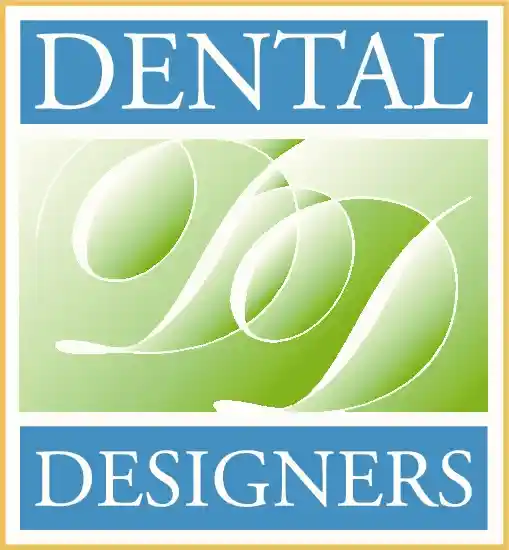How To Prevent Cavities And Tooth Decay From Rockford Dentist

Tooth decay and cavities can lead to serious dental issues if left untreated. Thankfully, our expert Rockford dentist has the knowledge and tools to help prevent cavities and tooth decay through professional cleanings, fluoride treatments, dental sealants, and excellent dental care recommendations. Read on to learn why good oral health is so vital and how visiting the pediatric dentist biannually in Rockford can help you and your family maintain cavity prevention and healthy smiles.
Tooth decay results from acid wearing away your enamel and creating holes in your teeth called cavities. The good news is that cavities are preventable through simple daily oral care routines and regular visits with your dentist. Understanding what causes cavities allows you to make the right adjustments to your habits. Protect your pearly whites from painful decay with these proven prevention strategies.
Practice Diligent Brushing And Flossing
The most essential prevention measure you must take is thoroughly brushing your teeth twice a day and flossing daily. Brushing removes leftover food particles and plaque buildup on your teeth before bacteria in plaque can produce enamel-damaging acid. Ensure you brush for the full recommended two minutes, gently scrubbing all surfaces of your teeth. Round, soft-bristled toothbrushes are ideal to fully clean teeth without damaging your gums. Replace your brush every 3 months or sooner if bristles appear frayed, as worn brushes are less effective. Carefully flossing between teeth daily removes debris a toothbrush cannot access. Establish set times for daily brushing and flossing—after waking up and again before bed—so these habits stick.
Use Fluoride Toothpaste And Mouthwash
When shopping for toothpaste and mouthwash, verify the label indicates it contains fluoride. This mineral strengthens enamel, making it more resistant to acid attacks from oral bacteria that dissolve protective enamel layers. Fluoride aids in remineralization as well, helping rebuild weakened enamel and reverse early decay signs. Drinking fluoridated water and getting fluoride treatments done professionally at your dentist’s office provides extra protection. While brushing, don’t immediately rinse with water after applying toothpaste. Let it remain on your teeth as you finish your whole mouth for maximum contact time and fluoride benefit.
Watch Your Sugar Consumption
Since bacteria feed on sugar and produce acid as a waste product, reducing sugar intake protects your enamel. Skip sugary cereals, sodas, juices, candies, and desserts, which fuel high acid levels from plaque bacteria. When you do indulge your sweet tooth, quickly rinse your mouth with water and chew sugarless gum afterward. Drink water and low-acid drinks like tea between meals rather than constantly sipping on sweet beverages all day that continually bathe teeth with enamel-eroding acid. Be aware of hidden sugars used extensively in processed foods and condiments, too. Check nutrition labels and choose products with little to no added sugars.
Get Your Teeth Professionally Cleaned
While properly brushing and flossing daily is essential, some plaque and tartar inevitably accumulate in hard-to-reach spots. Visibly removing built-up deposits on your teeth requires professional dental cleaning. Plaque and tartar left on teeth demineralized enamel and allow decay to develop. Regular dental visits every six months ensure your Rockford dentist or hygienist scrapes away these sticky deposits before permanent damage occurs. They will also check for early signs of cavities and small areas of decay you might miss on your own. Catching decay early maximizes tooth preservation and prevents additional drilling and dental work later on.
Use Sealants And Monitor Fillings
Protecting vulnerable tooth surfaces prone to pit and fissure decay preserves your natural enamel. Sealants placed by your Rockford dentist flow into the chewing surfaces of back molars to act as a barrier against food and debris getting lodged in ridges and grooves where decay often starts. They minimize acids and bacteria accessing fragile tooth structures beneath. Similarly, be vigilant in watching for older fillings that acquire marginal gaps near tooth edges, as these allow new decay underneath restorations. Report any lifting edges or discoloration around existing fillings promptly to avoid further restoration.
Do You Know How Cavities and Tooth Decay Occur?
Cavities and bottle tooth decay occur when plaque ( Plaque is a sticky film containing bacteria) builds up on the chewing surfaces of teeth. The bacteria in plaque feast on sugary and starchy foods in our diet, producing acid that wears away tooth enamel, leading to decay. Some questions to consider:
- What causes tartar and plaque and childhood tooth decay?
- How can I prevent large cavities from forming?
- Why are regular dental cleanings important for good oral hygiene?
- What is the best way to protect my tooth enamel?
Use Fluoride and Dental Sealants to Protect Against Decay and Prevent Cavities
Fluoride strengthens tooth enamel. It also reduces the risk of cavities forming. The dentists will carefully examine Rockford and may recommend regular fluoride treatments for tooth roots. It includes fluoride toothpaste or fluoride supplements depending on the needs of teeth, gums, and oral health. Dental sealants provide an extra layer of protection on the chewing surfaces of back teeth, helping prevent decay.
Some additional questions on decay prevention include:
- How exactly does fluoride protect my teeth for dental hygiene?
- At what age should my child start seeing the pediatric dentist for cosmetic dentistry?
- Are dental sealants right for my teeth cleaning to keep them healthy?
- What’s the difference between fluoride treatments and fluoride toothpaste?
Maintain Excellent Oral Hygiene and Visit the Dentist Regularly for Pediatric Dentistry and Fluoride Treatment
An effective daily oral care routine is key when trying to prevent tooth decay and cavities from forming. This includes brushing twice per day for two minutes with fluoride toothpaste, flossing thoroughly once per day, and rinsing with an ADA-approved antimicrobial mouthwash. Visiting the Rockford dentists biannually for professional cleanings and exams will allow them to carefully examine your teeth for early signs of decay. Contact us today to schedule your regular dental visits!
Here are some common questions about oral hygiene practices:
- How often should I brush and floss my teeth for regular cleaning?
- How much fluoride should I use if tooth decay begins?
- What’s the proper way to brush for maximum plaque and tartar removal if you want dental cleaning?
- When should my child start flossing and rinsing if the child has any childhood cavities?
- Why are dental exams and teeth cleaning so important?
- What happens during a professional cleaning during periodontal disease?
Contact Us Today At the Rockford Dentists in IL for Exceptional Dental Care
From exams and professional dental sealants in Rockford cleanings to fluoride and sealant treatments for gum disease and against oral bacteria, the expert dentists in Rockford have all the tools and knowledge to help prevent tooth decay and cavities in both children and adults. Contact us at our dental office today to schedule your next dental visit – we look forward to seeing your smile and dental health through pediatric dentistry!
In summary, remember to:
- Use fluoride toothpaste twice each day and rinse
- Floss thoroughly every day
- Attend regular dental exams & cleanings
- Consider sealants for your back teeth
- Contact the Rockford dentists for decay prevention
Commit to diligent daily brushing and flossing, plus regular professional cleanings and exams to defend your teeth against painful cavities. Minor adjustments like limiting acidic drinks and sugary foods that bacteria feed on also help slow the decay process. Follow these fundamental prevention measures to maintain your bright, healthy smile for life. Be proactive and start preventing cavities as early as possible rather than waiting for decay symptoms to show up. Contact our dentist’s office if you have questions about your oral hygiene routine or want to discuss sealants and other preventative treatments you might benefit from based on your unique oral health status and risk factors. With consistent, simple prevention habits, you can confidently curb decay.

